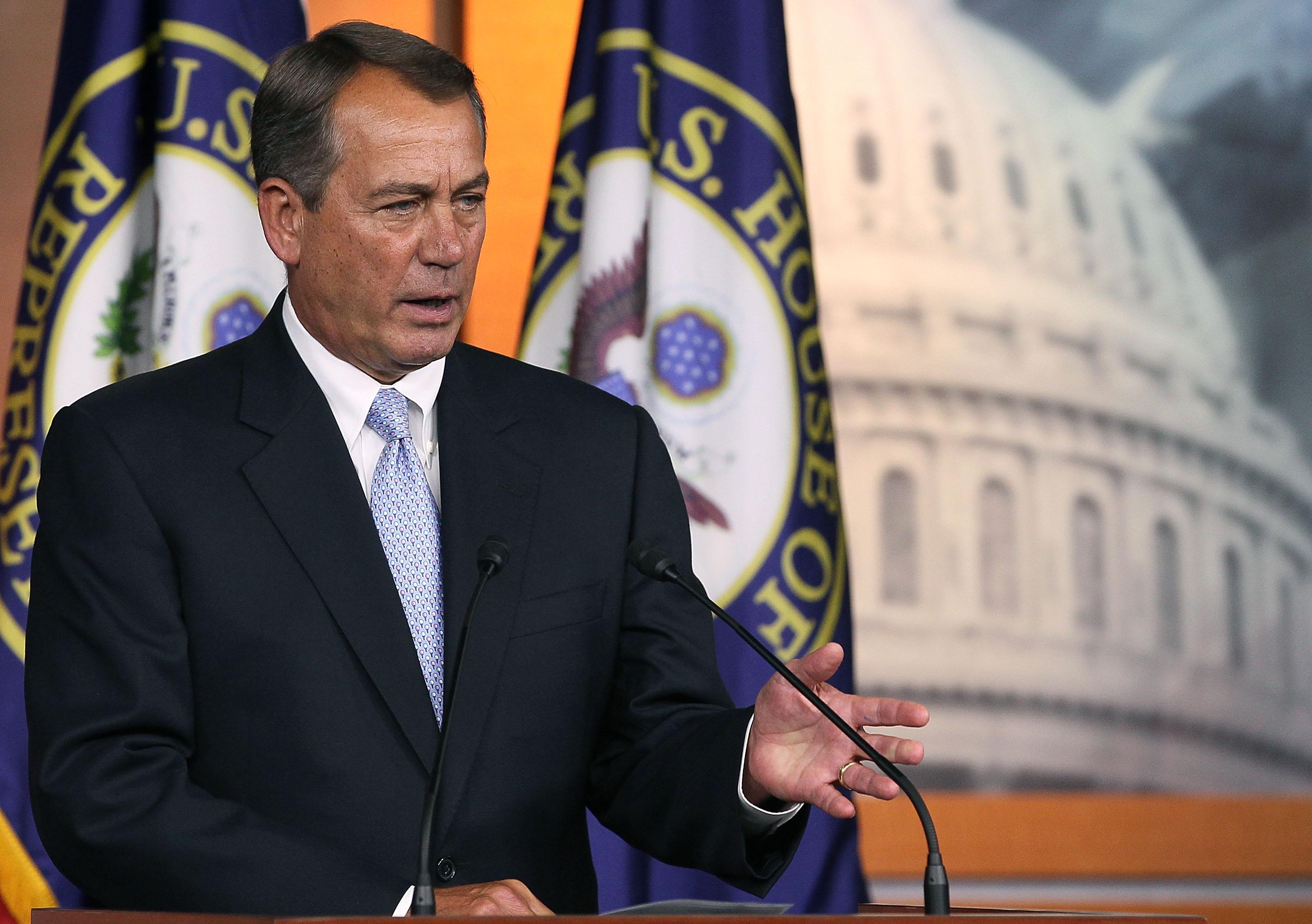Something terrible happened in Congress yesterday—and nobody seemed to notice. House Republicans voted to take money away from programs meant to help poor people and give it to the military instead. That’s not my idea of wise policy, but that’s not what was terrible about it. The problem is that the vote constitutes a collective Republican welching on the agreement that was reached last spring to raise the statutory debt ceiling and avoid national default. Yesterday’s vote doesn’t undo the deal or cause any immediate problems, but by so speedily backing out of their agreement, the Republicans have done something much worse—made it impossible for anyone to negotiate with them in the future, because it’s clear they cannot be trusted to keep the promises they made.
If President Obama wins re-election, the debt-ceiling issue will have to be confronted again, but now in a Congress that has been poisoned by the Republicans’ welching on the last agreement. The country, in other words, is set for an even more severe version of the crisis that crushed financial markets last summer.
For some years, debt-ceiling debates have been a golden opportunity for partisan posturing without real consequence. The White House requests a lift, its partisans vote yes, and most members of the opposition party take the opportunity to vote no and complain. Back in 2006, then-Senator Barack Obama played this game, arguing that “the fact that we are here today to debate raising America’s debt limit is a sign of leadership failure.” In fact, the 2006 debt-ceiling hike was not a sign of leadership failure but, like every other hike before it, a sign of the underlying stupidity of a law requiring Congress to authorize borrowing in order to fund the spending Congress already demanded.
But all this changed starting in the lame-duck congressional session of 2010. Bills were passing at a rare pace for the Obama era, and the White House and Republicans agreed on some temporary tax-cut measures. Tax cuts, of course, involve additional borrowing. So this might have been a great time to sneak a debt-ceiling hike into the package. But it didn’t happen.
Instead, Democrats and Republicans alike plunged forward with the view that a debt-ceiling showdown could be a golden opportunity. Republicans wanted to use it as a hostage-taking opportunity in which they would agree to an increase only if every dollar of new borrowing was matched by a dollar in spending cuts. The White House wanted to use the crisis to strike a “grand bargain” on the long-term structural budget deficit. The president’s strategy didn’t work, once it turned out Republicans were really serious about the no-tax-increases thing. So in summer 2011, they reached a compromise. A harsh package of automatic spending cuts that would take effect at the end of 2012 unless a bipartisan “supercommittee” devised an alternative deficit reduction framework. In order to create an incentive for the parties to cooperate, the cuts were split half-and-half between the defense and nondefense sides of the budget.
The supercommittee, famously, deadlocked because Republicans still don’t want to raise taxes. This was briefly treated like a disaster by some segments of the press, but was a perfectly fine outcome from a fiscal perspective since it merely meant that the agreed-upon automatic cuts would take place.
Except now Republicans want to change the deal. It won’t happen because the president won’t sign it, but it’s not as if rescinding the defense cuts and making up the money by soaking the poor is a good-faith bargaining effort. It’s a straightforward effort to use the terms of the jointly agreed budget package as a political weapon against Democrats who’ll be accused of softness on defense. Politics ain’t beanbag, so we don’t need to cry for the hurt feelings of congressional Democrats. But a big part of the point of reaching a bipartisan agreement is that the other guy doesn’t get to turn around and slam you for what you just both agreed to. The practical impact of this is that when the debt ceiling needs to be raised again in January, there’s going to be no way to make a deal. If Mitt Romney wins that may not be a problem, as he and congressional Republicans could just quickly lift the ceiling. But if Obama’s still in office, we’re looking at a potential disaster. Having won concessions by using the debt ceiling as leverage in the past, the GOP isn’t going to quietly go back to the old complain-and-agree approach. But there’s no way Democrats can bargain with a party that’s so eager to wriggle out of the terms of deals.
The Obama administration, if it still exists, is going to have no choice but to insist on a “clean” increase in the debt ceiling and watch a terrifying game of chicken unfold. Even if one side does back down, it would only come at the eleventh hour. There’s considerable evidence from the last showdown that the mere uncertainty and anxiety did measureable harm to the economy, and people will be even more nervous this time around. And if we do go over the cliff, then nobody really knows what will happen—but it’s unlikely to be good. On occasion I’ve raised the possibility to administration officials of financing the government with large-denomination platinum coins, always receiving laughter in response. But if the president gets re-elected, that may well be the best option we have. Alternatively—though it seems wrong to use the irresponsibility and recklessness of his co-partisans as an argument for his election—we can just hope that Romney wins in November and spares us the trouble.
